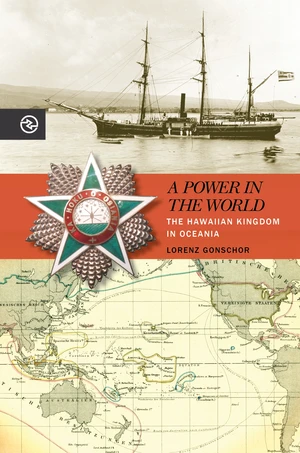Few people today know that in the nineteenth century, Hawaiâi was not only an internationally recognized independent nation but played a crucial role in the entire Pacific region and left an important legacy throughout Oceania. As the first non-Western state to gain full recognition as a coequal of the Western powers, yet at the same time grounded in indigenous tradition and identity, the Hawaiian Kingdom occupied a unique position in the late nineteenth-century world order. From this position, Hawaiâiâs leaders were able to promote the building of independent states based on their countryâs model throughout the Pacific, envisioning the region to become politically unified. Such a pan-Oceanian polity would be able to withstand foreign colonialism and become, in the words of one of the ideaâs pioneers, âa Power in the World.â After being developed over three decades among both native and non-native intellectuals close to the Hawaiian court, King KalÄkauaâs government started implementing this vision in 1887 by concluding a treaty of confederation with SÄmoa, a first step toward a larger Hawaiian-led pan-Oceanian federation. Political unrest and Western imperialist interference in both Hawaiâi and SÄmoa prevented the project from advancing further at the time, and a long interlude of colonialism and occupation has obscured its legacy for over a century. Nonetheless it remains an inspiring historical precedent for movements toward greater political and economic integration in the Pacific Islands region today. Lorenz Gonschor examines two intertwined historical processes: The development of a Hawaiâi-based pan-Oceanian policy and underlying ideology, which in turn provided the rationale for the second process, the spread of the Hawaiian Kingdomâs constitutional model to other Pacific archipelagos. He argues that the legacy of this visionary policy is today re-emerging in the form of two interconnected movementsânamely a growing movement in Hawaiâi to reclaim its legacy as Oceaniaâs historically leading nation-state on one hand, and an increasingly assertive Oceanian regionalism emanating mainly from Fiji and other postcolonial states in the Southwestern Pacific on the other. As a historical reference for both, nineteenth-century Hawaiian policy serves as an inspiration and guideline for envisioning de-colonial futures for the Pacific region.
Price history
▲0.04%
Mar 9, 2022
€24.33
Oct 25, 2021
€24.32

